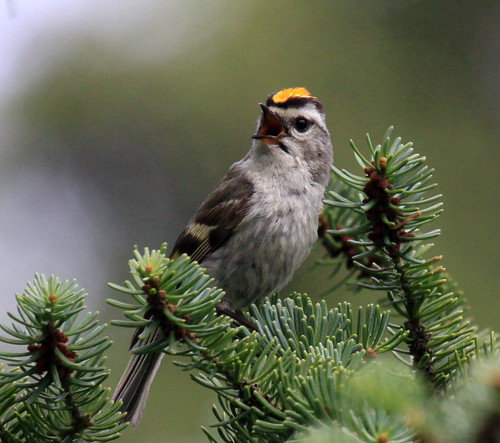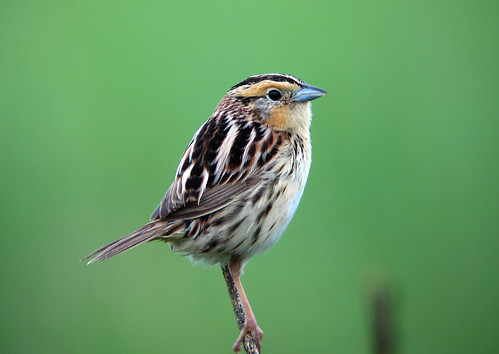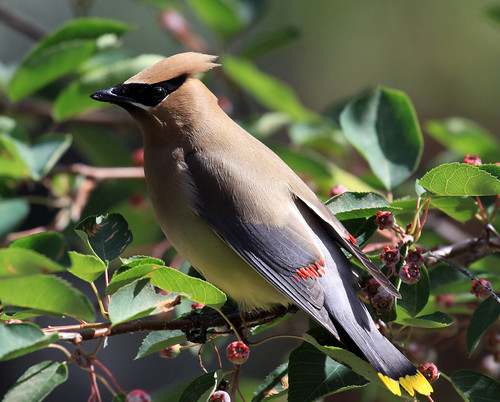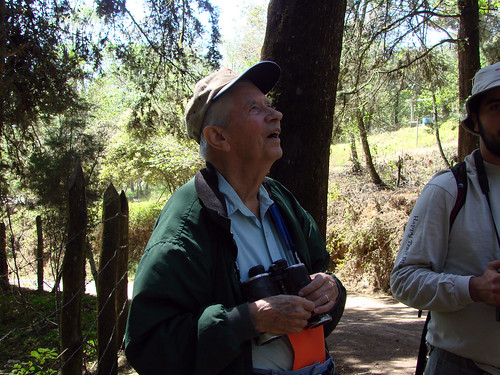Twas the month before Christmas, when all through the house,
Not a creature was stirring—not dog, cat, or mouse.
Or maybe there was—I sure couldn’t tell.
My ears are so old that my hearing’s gone to hell.
So up to Essentia in my Prius I flew
To the audiology office up on Floor 2.
A hearing test taken, and a graph in bright red
Soon gave me to know I had nothing to dread—
Well, if sixty-two hundred in cash could be paid.
I can solve all my woes with a new hearing aid.
My life will be better, the audiologist said,
With bionic assistance stuck into my head.
Well, into my ears, where the problem began.
By spring, again kinglets could be heard in the land.
Her eyes how they twinkled. Her dimples how merry.
She made the bad news sound cheerful, not scary.
And I heard her exclaim ere I drove out of sight,
"Happy hearing to all, and to all a good night!"
Or did I hear that? You just never can tell
What a person can hear when her ears go to hell.
So I’ll scrape up the money—I hope I succeed—
Because hearing those birdies is something I need.
 |
| Golden-crowned Kinglet |
I taught an Elderhostel with a wonderful young guy named
Troy Walters at Trees for Tomorrow for several years. For the first year or
two, Troy was still learning a lot of bird songs, and I usually picked up on
birds before he did. But by the third year, we were hearing things
simultaneously, or took turns picking out things first. But in the past four
years or so, he was consistently hearing birds before me, and sometimes I never
did pick up on some songs. In 2012, for the first time ever, I watched a
Golden-crowned Kinglet in full song, beak open, breast heaving, but I never
heard a note. I was suddenly struggling to hear Golden-winged and Blackburnian Warblers, and had also been noticing that some songs well within my hearing
range are sounding different—losing the high frequencies means I’m missing out
on some of the harmonics of those songs, changing the overall tonal quality.
This fall, I used a Cedar Waxwing recording in a “For the
Birds” program I was producing. That’s a song I was still picking up on in the
field, and thought was still within my hearing range, but when I played the
recording, even at top volume, I couldn’t hear a whole section. That’s when I
knew I’d waited too long already. I made an appointment with an audiologist.
Although the very thought of needing hearing aids is
sobering, I’m in excellent company. My birding hero of the universe, Chandler
Robbins, told me that he got hearing aids long, long ago. His younger brother,
the late Sam Robbins, was Wisconsin’s foremost birder, with legendary ears. As
Sam reached his 50s or 60s, he was starting to lose some of his high
frequencies, but refused to think about hearing aids until he and Chandler were
birding in Wisconsin one spring morning. Standing in one spot, Chandler could
pick out four Winter Wrens singing simultaneously, while Sam couldn’t hear any
at all—that's when he got his own hearing aids. I use a Winter Wren song as my phone’s ringtone, so if I lost that one,
I’d be in trouble in more ways than simply losing a splendid and favorite bird
song.
I’m lucky that my excellent hearing lasted as long as it
has, and even now my 63-year-old ears still pick up on some sounds that others
miss, probably because I’ve been so focused for so long on noticing bird songs.
But my ears do need help now, at least if I’m going to keep mixing my own radio
programs and leading field trips and recording and listening to birds on my
own. Unfortunately, the kind of hearing aids that can help pick up the sounds I
need to hear are extremely expensive—a pair will cost $6,200. It would be much
less expensive to go with a cool new invention that simply lowers the frequencies
of high-pitched sounds so we can hear them within our hearing range, but to use
that, I’d need to relearn all my bird songs, and they wouldn’t sound the same. So
I’ll have to squirrel away all my earnings for a while to cover the hearing
aids, which I'll get in early April so my test period extends through warbler migration. I will commit when I know I can hear those warblers again. It's a heck of a lot of money, but it’ll be worth it for me to hold on a little longer to the bird songs
that have so enriched my life.
(This is not as bad as it sounds. Our insurance will cover some of the expense, and we'll put enough money in that "health savings account" thing so we won't have to pay taxes on the money for this. So don't worry about this!)
(This is not as bad as it sounds. Our insurance will cover some of the expense, and we'll put enough money in that "health savings account" thing so we won't have to pay taxes on the money for this. So don't worry about this!)



